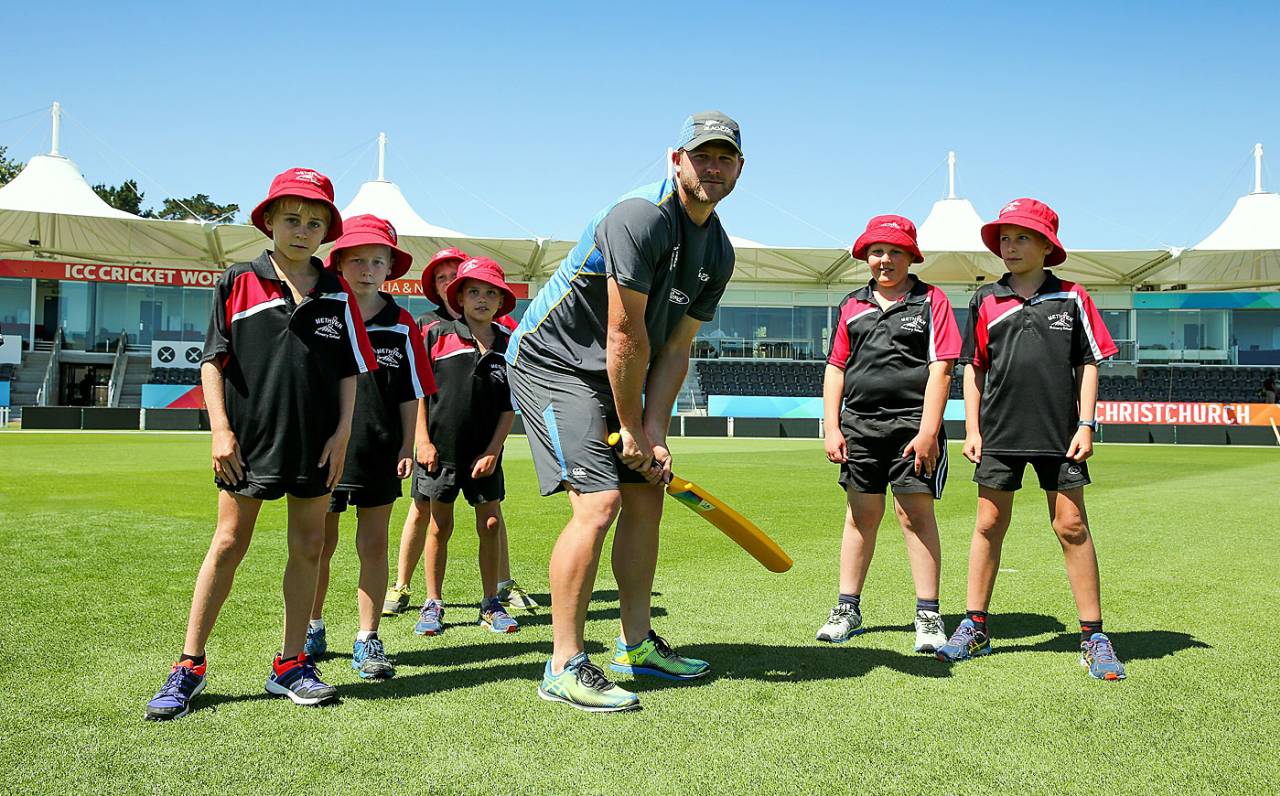Watching the Under-13 Queensland Schools State Carnival, my 12-year-old son drew my attention to Mark Nicholas'
excellent essay, as he was preparing for his last game of the carnival, Metropolitan North v Wide Bay. As vice-captain of his team, he was drawn to Nicholas' comment that leaders play a crucial role in creating a new paradigm, a culture shift that moves away from the notion that sportsmanship and competitiveness are mutually exclusive beasts.
His observations were particularly poignant because they were made on the final day of the carnival. Having spent five days watching adult men run the event, he was receptive to any message that echoed the visible aspects of the cricket culture that the coach, manager, selectors and parents had been repeatedly emphasising throughout the week - that while winning was important, it was entirely possible, nay mandatory, to pursue that goal within the rules that govern everyday behaviours at school. Being a schools-run event, it was simply "business as usual". Normal school rules applied.
Try telling a bunch of 12-year-olds that a winner-takes-all final is not meant to be a competitive event. Despite a 7.30am start, the boys were beside themselves with anticipation. As if the coach had read Nicholas' piece (he hadn't), he was able to harness those competitive juices and prepare his young charges to play in their first final without feeling the need to tap into white-line fever. If these coaches, dealing with young boys who have poorly developed pre-frontal cortexes (the part of the brain that, when fully mature, helps to regulate impulsive behavior), can elicit 100% compliance, surely it is entirely possible to expect grown men to behave similarly at any level.
For 12-year-old boys, this final was the equivalent of a Test match; 99% of them will never make it to the real stuff. This is their moment of glory, with no history or precedent to draw from. All they have to go on is some fantastic role models in their coaches (who are schoolteachers by profession), and a clearly articulated set of expectations that require them to treat opponents with courtesy. You're allowed to win, to get excited, to celebrate, even to feel crushing disappointment. All those emotions that international cricketers experience too, but they've got (supposedly) mature brains that are far more advanced than the ones of these little tackers.
When I asked my son if there was any "aggro" out on the field, he said that all the coaches had told their teams that if they stepped out of line, they would be sent home. Simple as that
Nicholas is correct. It's down to leadership and culture, starting at the top. Cast your mind back to Brendon McCullum's graceful post-match interview after the recent Gabba defeat. In Steven Smith, we have another captain who gives us every hope for optimism.
If a bunch of schoolteachers can manufacture a culture of respect and tolerance without inhibiting natural competitiveness, surely it can't be that hard to migrate that spirit into men's cricket at all levels. Not once in an entire week of cricket, 30 matches in total, 100 overs a day, played over five consecutive days (longer than most Tests!) in the heat of North Queensland with no air-conditioned dressing rooms, sports drinks and other comforts did we see a single incident that warranted censure. I lost count of the number of times a crestfallen batsman was surrounded by fielders who gave him a pat on the back as he trudged off. Umpiring decisions were accepted with grace and there was never a harsh word exchanged between teams. And by Jove, make no mistake, they were all playing to win.
When I asked my son if there was any "aggro" out on the field, his quizzical look almost shamed me. He went on to say that all the coaches had told their teams that if they stepped out of line, they would be sent home. Simple as that. He went on to ask me why we expect kids to behave like this but lower our standards for adults. Revealingly, he did admit that club cricket, run by parents and not governed by school rules, was a totally different experience. The main difference? Leadership culture.
The selectors were no different. They walked around the grounds all week, making notes but with a kindly word for all the boys - which freed up the children and allowed them to play their natural game. In fact, the kids were more tense around their parents than around the coaches and selectors. Isn't that the polar opposite to the adult world, where families provide release from the tense and fractious competitive arena? One of the managers called me the day after the carnival with feedback on what my son could do to improve his game. No hidden agenda - just a love of the game. So many opposition parents were seen offering genuinely warm congratulations to boys they barely knew.
Dirk Nannes was magnificent on radio commentary on Monday from the WACA. As a father, like me,
he wonders if children are learning the right habits. A week ago, in the little town of Mackay, a bunch of kids, led by good men, made an optimist of me.
Michael Jeh is an Oxford Blue who played first-class cricket, and a Playing Member of the MCC. He lives in Brisbane
